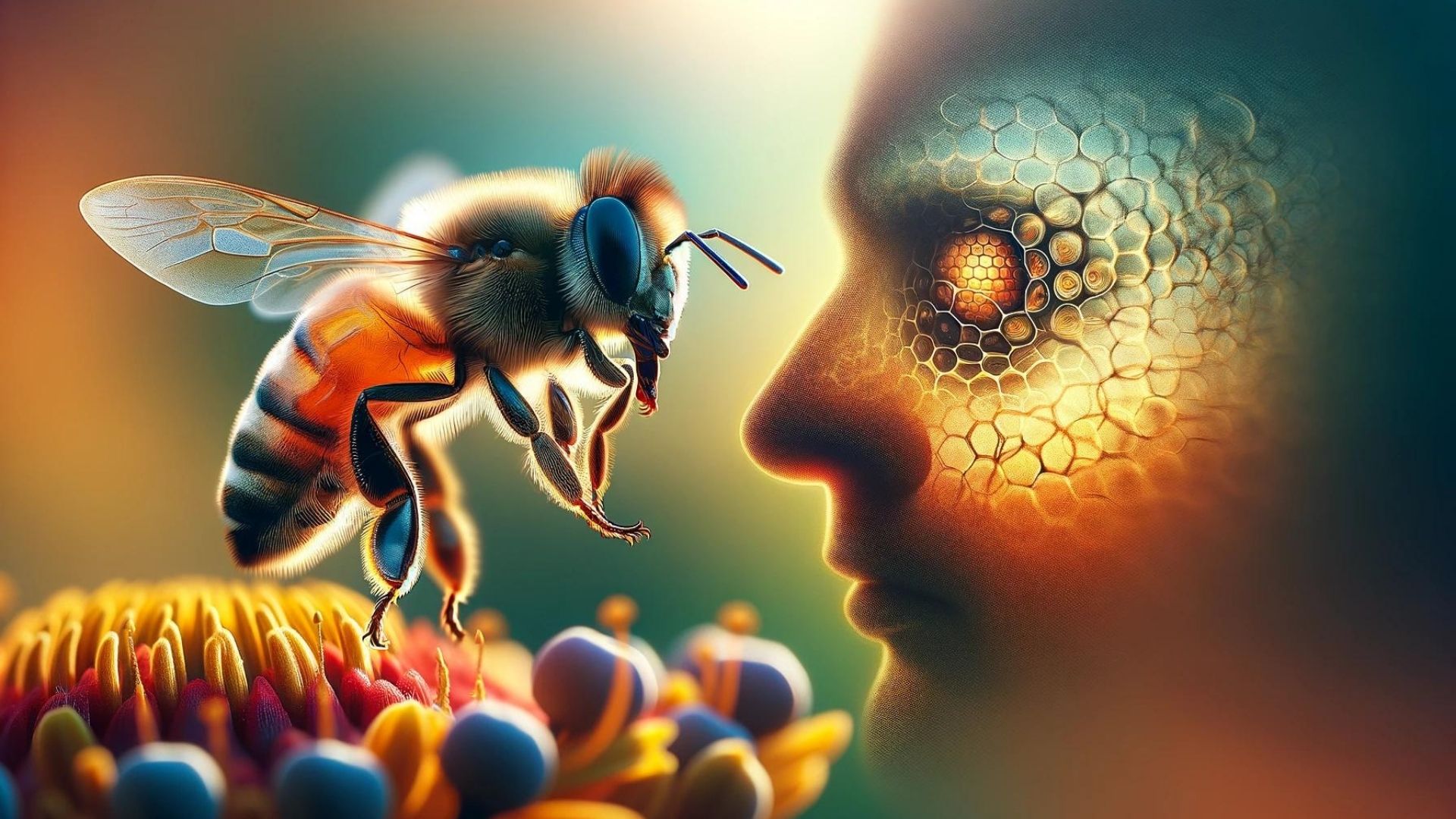Did you know honeybees can recognize human faces?
Honeybees are renowned for their intricate dances, complex social structures, and their vital role as pollinators. But did you know they might also have a surprising knack for facial recognition? While it sounds like science fiction, research suggests these tiny insects can be trained to distinguish between different human faces.
Seeing the World Through a Bee’s Eyes
To understand how a bee might recognize a face, we need to dive into their unique way of seeing the world. Honeybees have compound eyes made up of thousands of tiny lenses. This gives them a very different visual perception than humans. Instead of focusing on fine details, they see the world in a more pixelated way, breaking down images into basic patterns and shapes.
Training Bees to Know Your Face
Researchers have taken advantage of this unique visual system to teach honeybees to recognize human faces. In studies, bees are shown images of different faces. If they choose the “correct” face, they’re rewarded with a sweet sugary treat. Over time, bees learn to associate particular face configurations with a reward. Surprisingly, they retain this information and can accurately identify the target face even when presented with new faces they haven’t seen before.
Understanding Insect Intelligence
This seemingly simple feat of facial recognition has profound implications for our understanding of insect intelligence. Honeybees have minuscule brains compared to humans – about the size of a sesame seed! Yet, they demonstrate a capacity for complex learning and visual discrimination that was once thought to be the domain of much larger-brained animals.
The Buzz about Bees
The discovery of honeybee facial recognition challenges our assumptions about what ‘simple’ creatures are capable of. It demonstrates that complex behaviors and surprising intelligence can exist even in the smallest of beings. As scientists continue to explore the world of honeybees, we’re sure to uncover even more extraordinary secrets hidden within their busy hives.










0 Comments